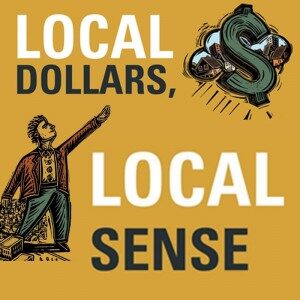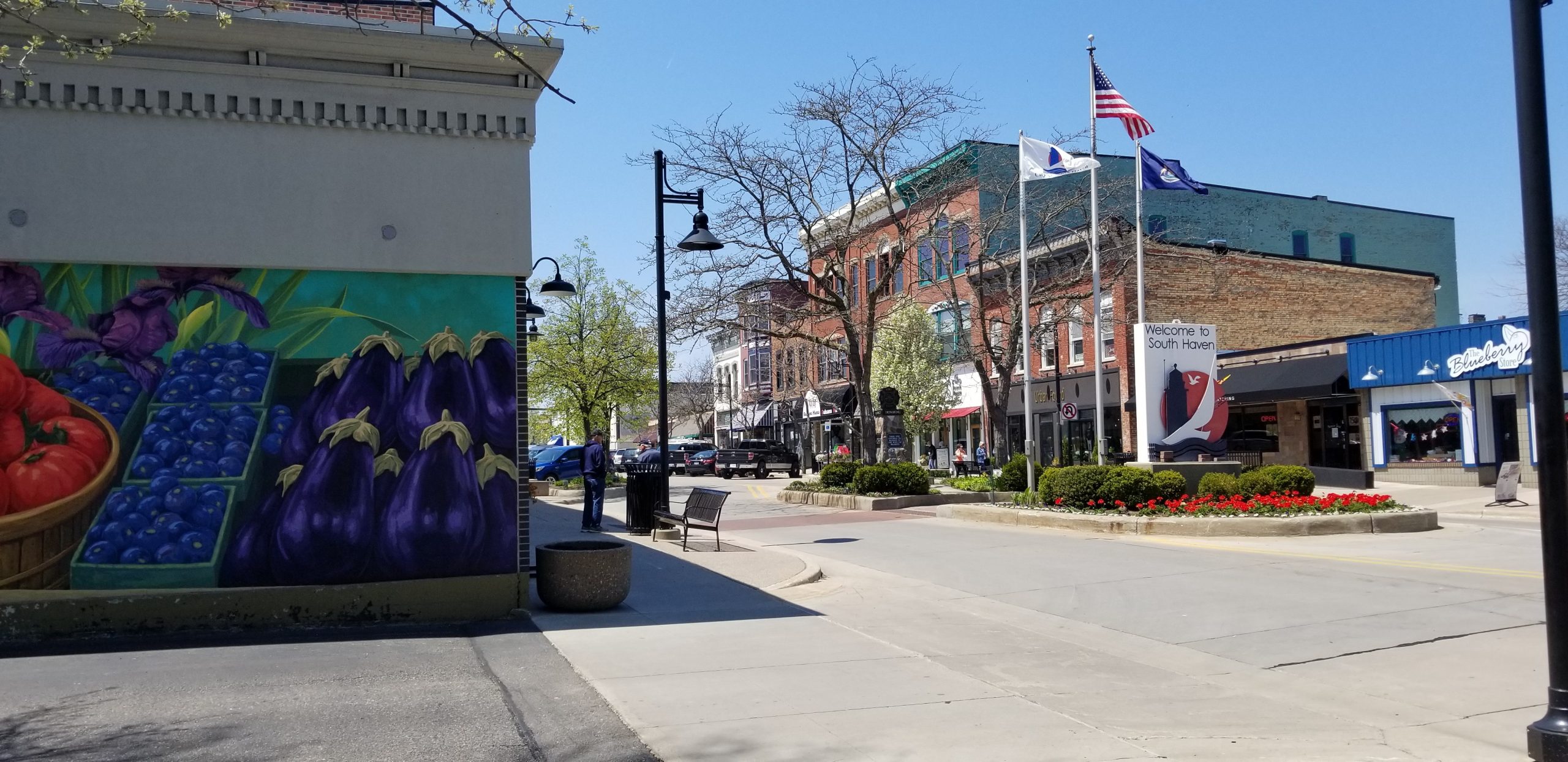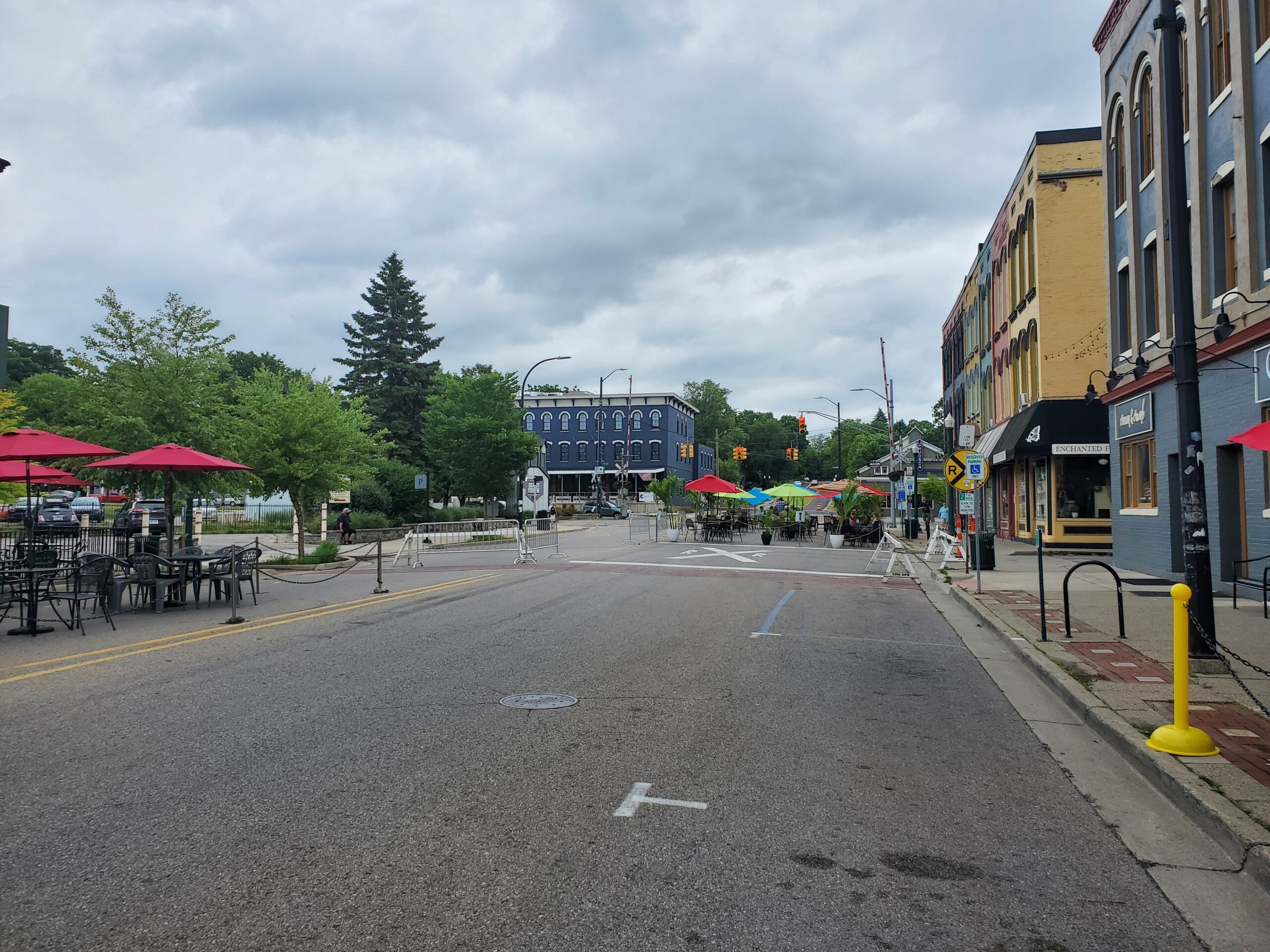
“Local Dollars, Local Sense” by Michael Shuman
I’ve been thinking a lot lately about what role that I, and the financial choices I make for my household, play in the local economy. For years, I’ve participated in the Buy Local movement; First Fridays events; subscribed to farm shares; dedicated most of my monthly eating out budget to locally-owned restaurants; and bought holiday and birthday gifts at Main Street shops. My children are well-familiar with the offerings of the novelty stores in our local downtowns and my spouse takes joy in being on a first name basis with his local comic book dealer. These choices are sometimes more expensive (or surprisingly less pricey) than big box or online-only retailers. And sometimes we cannot find what we need on Main Street–hello, women’s clothing stores–but we do what we can with the resources we have.
I have often wondered if we could do more. One way to do that would be to move beyond consuming locally to investing locally.
When we carry out intentional local economic behavior, according to author Michael Shuman in his book Local Dollars, Local Sense, we are reinvesting in ourselves and our community. We’re also reaping the many other benefits of local businesses over non-local competitors. As aptly stated by Vermont economic development expert Bruce Seifer, “Local businesses reinvest their money locally. They hire local people. They work with the schools, they mentor and train, they volunteer. They donate their charity locally. They serve on boards. When times get tough, they’re more likely to stay and not leave town.” Seifer examines this concept with his co-authors Rhonda Phillips and Ed Antczak in Sustainable Communities: Creating a Durable Local Economy by contemplating what exactly composes a durable economy. They conclude that, rather than tracking the cold economic numbers as they undulate up and down over time, it is better to consider the whole community as it not only survives but thrives.
Community Wealth is this same concept being unfolded in our ongoing conversations here at the League, building on not only our placemaking roots but our work supporting crowdfunded investment in both businesses and public spaces.
The League began researching and testing this aspect of community wealth during the recovery from the Great Recession, inspired by a group in Adrian. We joined forces with others to get the Michigan Investing in Local Economy (MILE) Act passed in 2013 and saw the formation of the Patronicity crowdfunding platform. I also wrote back in 2019 about the more recent impacts of this work and Michigan’s place as a leader on this front–both in terms of donation-based crowdfunding and the ripening market for investment-based community capital.

Phoenix Street in South Haven
Just prior to the pandemic shutdown, several projects in Michigan were poised to press forward. Some were utilizing Opportunity Zones, others were seeking a mix of state and local incentives, private equity, and traditional sources of funding such as SBA loans or commercial bank loans. All were most certainly facing the need for complex capital stacks with a blend of funding sources. Many of those potential investors are individuals of moderate net worth who live in the community. Others are business owners who are poised to make one of the biggest investments of their entire careers by simply rehabbing a downtown building for their enterprise or doing a mid-sized business expansion.
Most pre-pandemic projects were not seeking funding from a group of local investors due what is known as a “chicken-and-egg” problem: there’s a lack of choices apparent to would-be investors and an emerging sense of legitimacy for this kind of investment. Returning to these projects will be challenging, due to the natural tightening of credit markets in another recession. And yet there is such a huge untapped source of local dollars right here in town, able to be directly invested in businesses that people know and love. As stated by Shuman, even if individuals of moderate means regularly invest 1 percent of their retirement portfolio in such local businesses, the impact would be astounding.
Community capital raises for investments in local businesses can be opaque from the outside. “Small scale investors are usually not accredited [with assets of $1 million or more outside of the value of their primary residence], and then that becomes a regulation issue for the issuer and investor,” says Michelle Hoexum of Propeller, a Grand Rapids-based advisor to social entrepreneurs and investors. “Generally, investors in this space are not connected to deal flow. This is particularly true with Opportunity Zones, which are complicated deals that have mostly focused on real estate transactions over business investments. These are complicated transactions that feel out of reach for most small-scale investors.”

Depot Town Restaurant District in Ypsilanti
As Michigan continues to reopen its economy, we are reckoning with an uncertain world of halted projects and unclear next steps. Most of the Main Street mainstays and local businesses we hope to see persist have taken heavy losses, gravely impacting the potential investments in their built assets, inventory, and staff far beyond the capacity of federal or state assistance. We have seen the innovative response of the MiLocalBiz program by MEDC on the Patronicity platform, a donation-based crowdfunding campaign directly funneling assistance where it’s needed most. We still need even more direct connections between would-be investors of moderate means and local businesses seeking working capital.
While much of the new normal is still being determined, what we do know is that local economies have a fighting chance at survival when they are intentionally supported by their communities. Developers and business owners have a much better chance of getting a project approved and financed if a mayor or other civic leader recognizes a project’s value relative to their broader agenda. Local reinvestment comes from the vocal support of local leaders–not just during recruitment or incubation, or by supporting a clear and predictable permitting process, but by deliberately making the opportunities to invest in our local businesses accessible, legitimate, and encouraged.